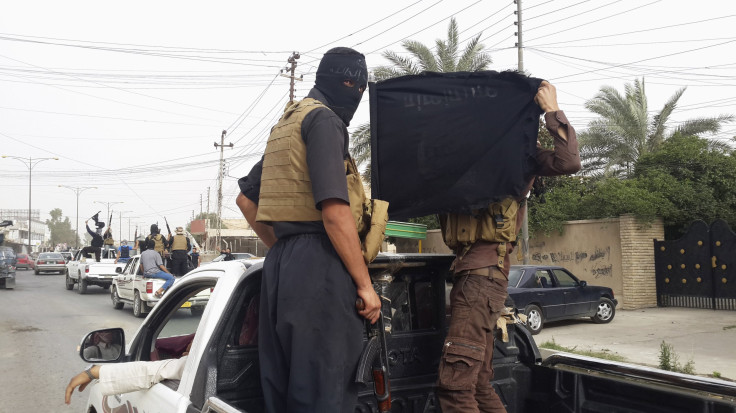Why ISIS Seizing Weapons and Aircrafts May Not Help It Crush Maliki's Forces

Over the course of two weeks, Sunni militants fighting for the Islamic State of Iraq and Syria (ISIS) have taken over large swaths of land in Iraq in an attempt to create an Islamic caliphate. Along with its new territory, it has also seized new weapons and vehicles, large sums of cash, and two airports. But the group’s newly attained prizes, especially the weapons, won’t be of much use unless the fighters know how to use them.
In a phone conference with reporters Wednesday, Maj. Gen. Paul Eaton, who served more than 30 years in the U.S. Army, said ISIS has “developed a war chest of some $2 billion” in the past two weeks.
“They’ve taken away a significant amount of U.S. donated equipment and they have routed at least two divisions -- right now 60 of 243 Iraqi battalions are combat ineffective. The remaining battalions are to be seen,” Eaton said.
The aircrafts and airports could be the most important assets to the group as they would give it would allow it to fight Prime Minister Nouri al-Maliki’s forces from the air. In its takeover of Mosul June 10, ISIS grabbed two airports -- one civilian and one military, along with a handful of Humvees and helicopters. And on Wednesday, the Daily Beast reported that ISIS was threatening to take control of Balad Airbase, Iraq’s largest airfield.
These posts, though significant in terms of their strategic value, have yet to give the group any tactical advantage. The soldiers would need to learn how to fly the airplanes and helicopters before using them to fight.
According to reports that surfaced on various media outlets this week, ISIS is in control of Russian-made transport helicopters and surveillance planes. But it is unclear how many ISIS fighters, if any, know how to use them. What’s more: no one knows exactly how many ISIS fighters there are. Some analysts say there are about 10,000. But it is nearly impossible for anyone to confirm that, especially with the increasing number of Sunni civilians taking up arms in Iraq and Syria.
It is possible, though, that ISIS soldiers operating in other countries, or supporters of the group, know how to operate the new weapons and aircrafts and could train elite groups within ISIS.
Some analysts have speculated about the funding. Some say that Saudi Arabia might be one of the group's main financial backers. But according to an article published by the Washington Institute Monday, there is no credible evidence that the Saudi government is financially supporting ISIS.
And according to documents analyzed by officials at the RAND Corp. and McClatchy Newspapers, outside donations of the group amounted to only a small fraction -- no more than 5 percent of the group’s operating budget from 2005 to 2010.
"[The Saudis] are very concerned about ISIS establishing a safe haven in western Iraq. On the other hand, the Saudis have not hidden the fact that they basically don’t trust, and in some ways the king personally despises, Nouri al-Maliki, seeing the Iraqi government as a puppet dangling on the end of Tehran’s strings," said Colin Kahl, professor in the Security Studies Program at Georgetown University’s Edmund A. Walsh School of Foreign Service. "So the question is which do they prioritize? Do they prioritize working with the United States to help encourage Sunni tribes in western and northwestern Iraq to turn against ISIS? Or do they prioritize the short-term opportunity to destabilize the Maliki government. I can guarantee that Washington is pushing the Saudis to do the former, not the latter."
The discussion about finances, though, does not necessarily say anything about the group’s training. ISIS could take over even more land than it already has if it utilizes its new spoils.
"We’re not sure whether ISIS is going to consolidate right now or whether they’re going to try to expand their current footprint," Eaton said.
This week ISIS gained ground in the western part of the country by attacking the border of Jordan -- indicating that the group plans to include more than just Iraq and Syria.
© Copyright IBTimes 2024. All rights reserved.





















